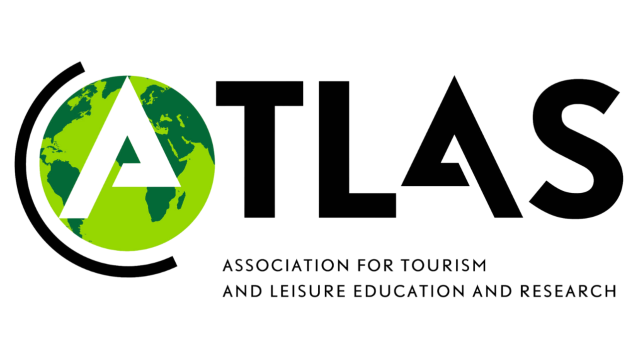Urban Tourism
ATLAS Special Interest Group
Urban Tourism
The coordinators for this Special Interest Group are:
Melanie Kay Smith – Budapest Business University, Hungary
Ko Koens – InHolland University of Applied Sciences and Breda University of Applied Sciences, Netherlands
Manuela Gutberlet – Breda University of Applied Sciences, The Netherlands
Before the COVID 19 pandemic struck cities were seeing strong increases in visitor numbers. This can be attributed to cities being easily accessible via low-cost-carriers, but also due to the growth of business tourism and the increasing attention of people for cities as places of leisure. Cities, on their part, have also developed, and now offer a wider variety of hospitality and leisure experiences than ever for visitors and residents (e.g. due to Airbnb and the rise of facilities catering for the ‘experience economy’).
The growth did come at a cost though. The resurgence of the critical discussion regarding negative tourism impacts and externalities in the form of overtourism, can be at least partially attributed to the experiences in often-visited (European) city destinations. Most initial academic contributions on overtourism built on earlier work on tourism impacts as they described the issues that came with tourism and including the ways to deal with this, often using single-case studies. However, more recently, more conceptual contributions have been suggested, related to concepts such as degrowth, tourism transformations, mobilities, city hospitality or placemaking.
As tourism seeks to rebuild after the pandemic, cities can be useful places to experiment and investigate. With its wide range of stakeholders, diverse offerings and activities, cities are well suited to act as incubators for innovations in tourism, thus advancing knowledge on both tourism development in cities and beyond, but also on life in cities and urban planning.
Within the Urban Tourism Special Interest Group we seek to contribute to the academic debate on urban tourism, and build relationships with an eye on joint projects that may can help with knowledge development.
If you want to contact the SIG coordinator, please fill in the form HERE
If you want to join this SIG, please fill in the form HERE
Annual review of activities 2024
A small number of members of the Urban Tourism SIG last met at the ATLAS conference in Bad Gleichenberg in October 2023. Topics discussed included sustainable and smart tourism city development and resident quality of life. It was felt after this meeting that the focus of the SIG should be narrowed somewhat in order to work more productively on project bids and potential joint publications.
Members of this SIG are quite active individually taking part in city-related research projects and publishing articles, but there has not been much collaboration between the existing group members. One of the challenges for the group is that urban tourism is a broad topic which covers other areas of tourism that are already present in other SIGs, for example, cultural tourism, events, gastronomy and mobility. For this reason, the group needs a more specific focus (like it did years ago when it was first established as a Capital Cities and Tourism SIG). The second challenge is that the group is rather fragmented and the same core members do not attend all meetings and conferences.
The first meeting to discuss the future directions of this group takes place on May 13th and a second meeting is planned for autumn 2024. We will also debate whether the SIG needs a new name and what that should be. Due to the unusually large number of streams at the conference in Breda, some of which already focus on cities, it was decided not to organize a separate stream for this group, only a shorter meeting as an update and re-launch for those who cannot attend the online meeting on the 13th May.
Suggestions for the new focus of the SIG include the following:
- Social wellbeing and sustainable tourism (including SDG 11 Sustainable Cities and Communities and SDG 10 Reduced Inequality)
- Cross-cultural and gender-related tourism experiences in cities
- City governance and its impact on urban tourism management
- Livable tourism cities and resident quality of life/wellbeing
- Post-overtourism strategies and new directions for urban tourism
- Smart cities to enhance wellbeing and visitor management
- Urban tourism resilience in the face of multiple crises (e.g. climate, refugees, terrorism, COVID, inflation, affordable housing shortages)
- Urban green spaces, sustainability and wellbeing
The Co-Chairs of the SIG met on 2nd May 2024 to discuss which of the themes might be most interesting for the group in the short term. An overarching theme could be urban crises or ‘urban tourism in an era of uncertainty’. This spans economic, environmental and social issues, as well as maybe culture and gender (e.g. identity issues). The idea of crisis also connects to resilience, for example, how people deal with crises and try to create wellbeing or quality of life and livable cities for residents. There is a connection to SDG11 goals about sustainable cities and communities (the focus on residents is also important because of overtourism, inflation, affordable housing crises, etc.). Governance is an underpinning theme, and we would like to include stakeholders in our work and meetings. But we also acknowledge that there are barriers to coherent policy and planning, especially within autocratic systems (how do we overcome those?).
This debate will be continued (e.g. on 13th May) and we are also contemplating creating a Blog, e.g. on LinkedIn and other platforms in addition to organizing more regular meetings of the group and sub-groups.
